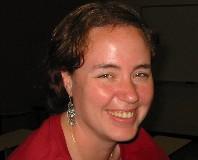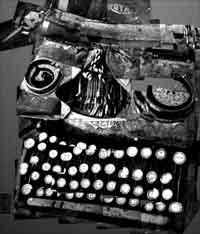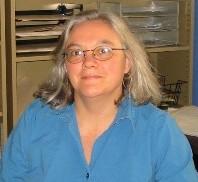|
|
Vision This
course was originally conceived as a way to professionalize graduate
students and prepare them for future careers in academia. The ideal
audience for the seminar is students who have finished their coursework
and are reading for their preliminary exams, and/or students whose
dissertations are nearing completion. The concrete goal of the seminar
is to enable students to publish their work, but two larger goals
include teaching students to be better readers of their own work, and
helping students to define and conceptualize their primary field.
|
|

Erin Hollis, Ph.D. Candidate
|
On the Writing for Publications Seminar "The
class helped with my professional development as I learned the process
and intricacies of how to get an article published. Receiving reader\'s
reports from faculty and a peer helped me to see the weak points in my
potential article. The class also helped provide a community of sorts
as the students shared their ideas and concerns about getting an
article published and going through the job search process. I believe
this was a valuable component of the Doctoral program, although it
might have been more beneficial earlier in the program."
|
|
|
|
Professional Training To
help students determine the difference between a seminar paper, a
dissertation chapter, and an article, faculty members, journal editors,
and guest speakers attended class and discussed their experiences in
the publication process. Students were also required to write and
respond to readers' reports on their papers, which helped them to learn
how to evaluate articles regardless of field.
|
|

Jules White, Typewriter photo-collage, 2002
|
|
|
|
|
Considerations for Future Restructuring of Course The
course raised a number of questions for the future about the timing of
professional training. Should a discussion of professionalization
happen earlier in the doctoral program? When do students most benefit
from exposure to professional academic life?
|
|

Sally Robinson, Graduate Director
|
On the Writing for Publication Seminar "Facilitating
the seminar on Writing for Publication taught me that students would
benefit from more sustained attention to the question of what
differentiates an article from a seminar paper and from a dissertation
chapter. We spent quite a lot of time thinking about this question in
the abstract and then bringing it to bear on each student\'s
article-in-progress. I also learned that we need to have some formal or
informal mechanism in place to encourage students to form writing
groups, especially at the dissertation stage. The students learned
quite a lot, I think, from writing readers\' reports, decoding
readers\' reports, and responding to them."
|
|
|
Immediate and Far-Reaching Goals One
of the future goals of this seminar is that dissertating students will
establish communities and writing groups that will help them complete
their degrees. These writing communities are ideally trusted critical
sources that will offer further insight on a student\'s work.
|
|
|